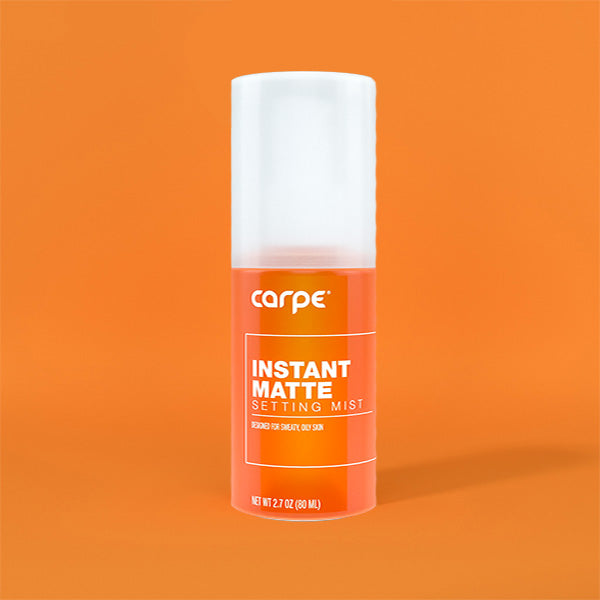Many people struggle with upper lip sweat.
While there are multiple reasons for this issue, the most common reason people sweat on from their face is because they have a condition called primary focal hyperhidrosis.
Primary focal hyperhidrosis (PFH) is a condition that causes people to sweat excessively from specific areas of the body including the hands, feet, armpits, and face.[1]
Excessive facial sweating is often referred to as craniofacial hyperhidrosis and this type of hyperhidrosis often affects various parts of the face and scalp, including the upper lip area.
Luckily, there are several treatments that people can try to reduce upper lip sweating and improve their quality of life.[1]
Causes of Excessive Upper Lip Sweating
It is important to distinguish why someone has an issue with excessive upper lip sweat because the type of treatment a person receives will depend on the cause of their sweating.
Unlike primary focal hyperhidrosis, which doesn’t have a well understood cause, secondary generalized hyperhidrosis is caused by a specific underlying medical condition or medication.
Certain diseases and conditions cause secondary hyperhidrosis including hyperthyroidism, some cancers, HIV, some infections like tuberculosis, and several others.
Secondary hyperhidrosis can also be caused by medicines like antidepressants, painkillers, hypoglycemic agents, and many of types of medicines.
In some rare cases, upper lip sweating can be caused by a type of hyperhidrosis called gustatory hyperhidrosis.
Gustatory sweating is occurs when people eat certain foods which makes them flush and sweat profusely from the face.
This type of sweating is very uncommon, but it should be considered if facial sweating occurs only when eating or thinking about food. Most of the time gustatory sweating is caused by an injury or damage to the parotid gland.[1]
Treatments for Upper Lip Sweating
If you are struggling with upper lip sweat caused by primary focal hyperhidrosis then there are several ways to manage your symptoms.
Antiperspirant: There are some antiperspirants for places like the face and groin that have sensitive skin and it may be beneficial to try these products before moving on to more intensive options.[1]
1% topical hydrocortisone cream can greatly reduce irritation caused by antiperspirants when used on the face.[3]
Anticholinergic medications can be applied topically or taken in a pill form. This type of medication stops the body from producing sweat and is often used once local therapies have failed.
Topical formulations of anticholinergic medications have the benefit that they cause less side effects than when the pill form is taken.
Oral anticholinergics can cause systemic side effects and the benefits need to be weighed against the risks. For people with intense facial and upper lip sweating medications can provide much needed relief.[3]
Botox offers another great option for treating craniofacial hyperhidrosis and it can be used to treat specific areas like the upper lip.
The FDA has approved botox for the treatment of axillary hyperhidrosis, but it has been used with promising efficacy in patients with craniofacial hyperhidrosis.
Unfortunately, complications can arise and muscles in the face can be weakened by botox exposure.
This is why it is imperative to consult an experienced doctor and know the risks before undergoing any type of procedure.
When upper lip sweating is treated by botox there is also a risk that patients may experience pursing of the lips or a change in speech patterns which are temporary side effects, but which can be serious. It is relatively uncommon for patients to experience side effects from the procedure and many get great results that allow them to live without symptoms for months at a time.[1]
Surgery. If patients have severe upper lip sweating and haven’t responded to any other treatments, there is a type of surgery that may be able to improve symptoms.
This type of surgery is called endoscopic thoracic sympathectomy and it is typically used to relieve the symptoms of palmar hyperhidrosis. It has been found to be effective in people with craniofacial sweating, but should be used as a last result as it is an intensive and invasive procedure. Unfortunately, a side effect of the surgery called compensatory sweating may limit how beneficial the surgery is in terms of improving a person’s quality of life.[3]
If you suffer from excessive upper lip sweat, it is important to find a way to manage your symptoms. There are effective treatments and they often greatly improve patient's quality of life.
Sources
- Pariser, D. M. (2014). Hyperhidrosis (4th ed., Vol. 32). Philadelphia, PA: Elsevier
- Nicholas, R., Quddus, A., & Baker, D. M. (2015). Treatment of Primary Craniofacial Hyperhidrosis: A Systematic Review. American Journal of Clinical Dermatology, 16(5), 361-370. doi:10.1007/s40257-015-0136-6
- Craniofacial hyperhidrosis can usually be managed pharmacologically, but surgery may sometimes be needed. (2016). . Drugs & Therapy Perspectives, 32(5), 191-194. doi:10.1007/s40267-016-0282-9






16790753702383.jpg?v=1679075372)

16790746985853.jpg?v=1679074700)


16790757289763.jpg?v=1679075731)









